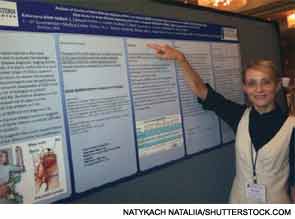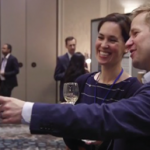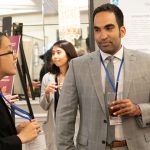
When I last contributed an article to The Rheumatologist, in June 2012, I had just begun my fellowship. This year, I write from a different perspective. I am better clinically. I know what I am talking about in rheumatology, at least half of the time. I know the people with whom I work. I know the best way to get from one part of the hospital to another, and I usually can find my way back to the parking lot. I am less frequently surprised by unanticipated medical issues that used to startle me, like a jumping jack-in-the-box. The charm of the first year is gone, but I appreciate the comfort zone that comes with the second year of fellowship training.
When I received an e-mail about the recent ACR/AF Rheumatology Research Workshop being held in Dallas where I am a fellow, I was eager to sign up. There was, of course, a caveat—participation required the submission of a research project. When I asked my program director about the event, he explained that the workshop was geared toward those fellows who were destined for careers in academia. Well what about me, still undecided and tenuous about the direction of my postfellowship career? Could I claim a home-turf advantage and participate without submitting a research project? Well, of course not.
I did, however, have something up my sleeve. During medical school and residency, I worked on a variety of projects, ranging from the effects of gastric bypass on hormone secretion to the sexual practices of medical students. One study, which I started during my residency and nearly completed, assessed the quality of bone marrow aspirates and biopsies. I was able to finish the study, submit it, and was happy to learn that it was accepted. I officially became a workshop participant.

Lessons on Science and Presentation, with Stingray
The first day’s lectures dealt with basic research topics, including genomics in rheumatology, novel therapies for rheumatoid arthritis, and animal models of rheumatic disease. Hermine Brunner, MD, a pediatric rheumatologist at Cincinnati Children’s Hospital, presented an overview of trial designs. Then Judith Smith, MD, assistant professor of pediatrics at the University of Wisconsin, Madison, detailed the role of anti–interleukin 23 therapy for the treatment of ankylosing spondylitis.
Later that day, Gary Firestein, MD, dean and associate vice chancellor of translational medicine at the University of California San Diego School of Medicine, shared some memorable anecdotes about a surfing accident and getting stung by a stingray. It was interesting how Dr. Firestein adopted this terrifying and painful (13/10 on pain scale) experience to his topic and presented ultrasound imaging of his injured foot during the opening slides of his talk on epigenetics. I had not known that, on some California beaches, you must shuffle in the ocean to avoid podiatric impalement by the stingrays. I contemplated changing my retirement plan after this talk, but concluded that, in my later years, I will be shuffling anyhow, no matter where I live.


